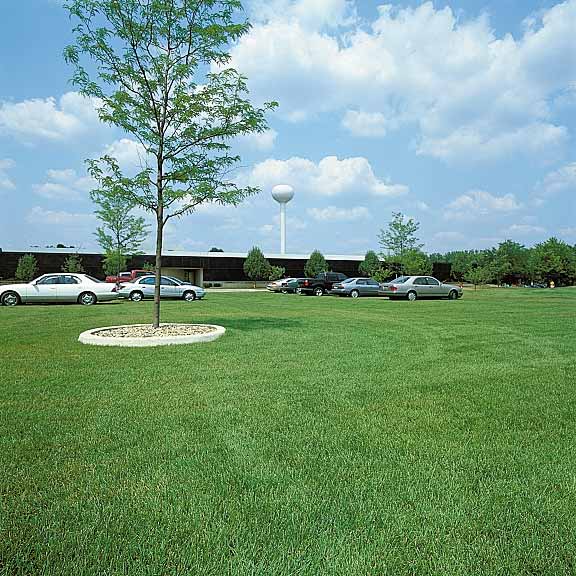
The Pros and Cons of a Grass Parking Area
Introduction
Thinking of turning an existing asphalt or concrete area into a grass parking area? Or thinking of using an existing grass area for parking? Well, having a grass surface instead of an asphalt or concrete one can certainly have its advantages and its drawbacks. A cool grassy surface that drains water well is an appealing option for a parking area but it’s not without some routine maintenance and costs to function properly.
Curb Appeal
Pro: Reducing asphalt and concrete at a home, at a building or on a site can be especially appealing if it’s replaced with cool, lush grass. Creating inviting parking areas that double as a green space to sit, play or simply admire can really increase the value of a property. Grass areas can also help eliminate messy potholes, puddles and flooded areas.
Con: However, one simply cannot install turf and be done with it. If cars, trucks or any type of vehicles are going to park on the grass, they must be supported by some kind of structure that will protect the root zone and transfer the load of the vehicle down to the base course below like a grass porous paver.
Environmental Benefits
Pro: Converting to or using grass paving can lower the ambient exterior temperature of that area on a hot day, capture and filter out airborne and liquid-form toxins released, and are capable of allowing a large amount of water to permeate quickly. This means the new grass area will now prevent water run-off, which helps prevent flooding.
Con: While a lot of grass pavers are made with 100% recycled material, adding to their environmental benefit, others are not – creating an additional potentially non-recyclable material.
Maintenance
Pro: Eliminating concrete or asphalt in favor of grass paving can eliminate replacing a surface for potentially a lifetime, depending on the grass paving surface chosen. Concrete and asphalt always crack and sometimes pothole after several years, demanding repairs and eventually replacement.
Con: Grass does require mowing, routine watering, and sunlight, limiting the duration one can park on an area for a given number of days in a row. Grass also requires time for the roots to attach before it can be driven on, so the area will not be immediately usable.
Costs
Pro: All porous paving systems are less expensive to purchase and install than asphalt or concrete, except porous asphalt and concrete. Having a grass porous paving area that can last a lifetime can also really cut down on long-term costs such as repairs and replacement.
Con: Not all porous pavers are repair and replacement-free. All rigid pavers are prone to buckle and crack after years of freeze-thaw cycles, requiring repairs and replacements of damaged areas.
Conclusion
Replacing a concrete or asphalt surface with grass porous paving so it may be used as a parking area can be a wonderful addition to any home or property. If the grass can still get enough sunlight in the design of the outdoor space, it can be an enjoyable, environmentally friendly option to help mitigate flooding and long-term maintenance costs.
For more information about the strongest, most flexible Grass Porous Pavers that last a lifetime, visit invisiblestructures.com
About Us
Invisible Structures is the leader in porous paving and stormwater management solutions. We provide the finest in grass porous paving, gravel porous paving, underground stormwater storage, erosion control, drainage, and access mats.
